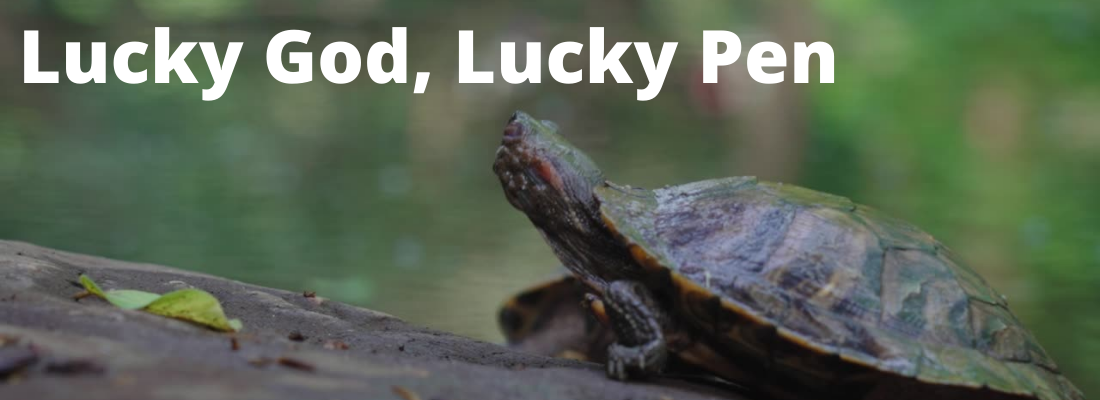Urushi and maki-e pens are often inspired by Japanese culture and mythology. The Danitrio Yokozuna series is especially suited for maki-e art. Because it’s quite a large pen, it provides a big surface area for artwork. Artisan Tatsuya Todo (Kosetsu) took advantage of the large “canvas” to produce his masterpiece Jurojin.
Jurojin (寿老人), the God of Longevity, is one of the Seven Gods of Fortune in Japanese mythology. He is considered the incarnation of the southern pole star. Japanese artists have been depicting Jurojin for nearly one thousand years. His legend may have started as a real historical figure, as he is said to be based on an ancient Chinese Taoist sage.

Jurojin is usually depicted as a cheerful old man with a very long head. He has a white beard, and holds a cane and fan. His animal companions are the deer, crane, and tortoise.

In Kosetsu’s pen, Jurojin appears with his characteristic long head and cheerful complexion. He gently holds a colorful blue tortoise, a symbol of longevity and felicity in Japan. The lines of the tortoise are carefully drawn in maki-e, as is Jurojin’s hand.

His other familiars are seen on the pen, too. On the pen cap, a crane dives gracefully beneath peach trees. The crane is a typical animal companion for Jurojin, as it is a symbol for happiness and longevity. In Japan, it is said that cranes live for 1000 years. As Jurojin is often depicted with a deer as his messenger, this animal appears on the pen as well. Kosetsu uses white urushi to paint the deer’s antlers.

The peach tree is featured prominently in this pen. Kosetsu chose a vibrant red urushi for the peach tree’s blossoms. The peach fruit is another symbol for longevity, making it a natural choice for Jurojin’s tree.

Kosetsu is an established maki-e artistan with a strong reputation in the urushi fountain pen world. He trained under the notable Masanori Omote (another artisan that works with Danitrio), and has had his pieces exhibited in numerous urushi exhibitions. He holds the honorary title of Dento Kogei-shi, meaning "master of traditional crafts." This distinction is given only to a select few artisans who have a significant contribution to their craft.

We are honored to carry Kosetsu works, and look forward to many more creations from him. Click here to see all of Kosetsu’s pens on UrushiPen.com.
References
Encyclopedia Britannica, “Jurojin.”


